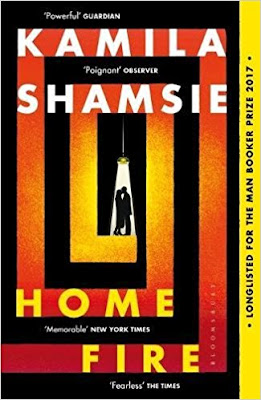On the face of it, it may seem odd
that love has a rule let alone forty, however, delved deep into the novel one
may find that the rules are not meant to create distance, make the lovers
observe formalities and be polite and sophisticated in their contact with the
‘one’ they love, rather the other way round, “ love blurs boundaries”. The novel
narrates a twofold story, a search for love and God, an adventure by Shamsi
Tabriz and his working relationship with Rumi at Konya and the consequences of
the dearth of love on human beings in the person of Ella. Love indeed makes an
unusual combination of people and places very much diverse and strangers in
their outer form, like wandering dervish, beggars and scholars, dervish in
brothel with harlots, prostitute in the mosque and Rumi with wine in tavern.
The novel explores how the extreme form of Sufis’ love of God transcends the
boundaries of the conventional religious practices to the extent which may
amount to blasphemy in the traditional order of religion. The action of the novel mainly takes place at
Baghdad and Konya.
Ella reviews the novel, Sweet
Blasphemy, a novel by A.Z. Zahara which deals with Shams of Tabriz’s, the
itinerant deverish, adventure of search for God and love at the various places
who finally meets Rumi at Konya and transforms Rumi. The experience has given
Tabriz ultra- wisdom which he exhibits in the form of his The Forty Rules. On
his arrival in Konya the first thing the wandering dervish does is to visit a
brothel and encounter a harlot, Desert Rose, who later shuns her profession and
becomes an avid mystic in Rumi’s court.
Tabriz encounters Rumi in public who
is on horseback crowded by pupils and admirers outside his mosque . Tabriz asks
him to get off and answer his question, “which one of the two is great: the
prophet Muhammad or the Sufi Bistami?.. Didn’t the prophet say, ‘forgive me, God,
I couldn’t know thee as I should have’, while Bistami pronounced, ‘ Glory be to
me, I carry God inside my cloak’. The question on its face may amount to
blasphemy but in fact its Sufi’s way of love. The question indeed befuddles
Rumi and Tabriz answers it based on his wisdom and knowledge. The interaction
leads to forty days retirement in Rumi’s library ends up in Rumi’s
transformation and keen attachment to Tabriz and sufis’ way of love. The
attachment grows to such an extent that it arouses the jealousy of Rumi’s
followers, family members and pupils, which ends up in Tabriz’s assassination.
The novel gives an insight into Sufi
Islam and the underlying rationale of the Sufis’ modus operandi. The whole
universe and its creatures are part of the one great entity, the Almighy, and
abound in love. Humans need to understand the scheme of things in the universe
which demonstrates love and affection. Humans need to contribute to the
repository of love and shun hatred and negative feelings, religion is not a sum
of few formulaic worships rather a source which augments and disseminates the
love.
Religious freedom and the
interconnectivity of religions is the underlying theme of Tabriz’s teachings,
as all religions are in fact the different routes leading to one single destination,
the love. The novel also shows that how the concept of Sema, the Sufi dance,
and Ney, the Sufi musical instrument came into existence in order to strengthen
the bond of love.
Tabriz’s recurrent power of prophecies shows a
somewhat unrealistic picture of incidents, overall a superb work, beautifully written,
the plot is closely knit, and keeps the readers engaged and fascinating from
start to the end.
By:
Ullah, Inam Gul. iukhan233@gmail.com
Read also:
Categories:
Elif Shafak
English literature
English novels
postcolonial novels
The Forty Rules of Love.
Turkish literature
Read More

